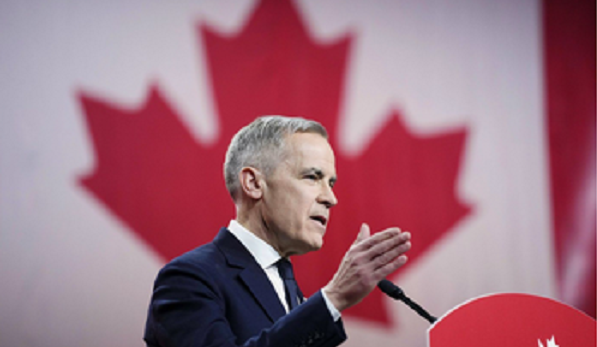Federal budget coming in the fall, Carney says
The federal government will present a budget in the fall, Prime Minister Mark Carney said Sunday, reversing course after his Finance Minister suggested last week that there would be no budget at all this year.
Mr. Carney told a news conference in Rome that there just isn’t enough time to put a budget together over the next few weeks. The government has faced criticism, including from the opposition, for the rare decision to skip a spring budget.
“There is not much value in trying to rush through a budget in a very narrow window, three weeks, with a new cabinet, effectively a new Finance Minister – just reappointed,” he said.
“We will have a much more comprehensive, effective, ambitious, prudent budget in the fall.”
Delaying the budget will give the government time to figure out both the economic and fiscal outlook as it engages with the U.S. on tariffs and with allies on defence spending, Mr. Carney said.
He noted that the coming NATO summit, which will take place on June 24 and 25 in the Netherlands, could have fiscal implications for Canada. NATO is currently mulling over an increase to its defence-spending target, as the U.S. pushes for a benchmark of 5 per cent of a country’s GDP.
Mr. Carney said the federal government is also looking at ways to reduce its own costs, an exercise that will also affect the budget.
The Prime Minister announced the change of budget timing two days before his Finance Minister, François-Philippe Champagne, and Bank of Canada Governor Tiff Macklem are set to co-host the G7 meeting of finance ministers and central- bank governors in Kananaskis, Alta.
The following week, on May 26, the House of Commons is set to resume sitting for four weeks, although Parliament could decide to extend the sitting into the summer. The King will deliver the Speech from the Throne on May 27, which will outline the government’s policy priorities.
Mr. Champagne suggested to reporters after Wednesday’s first cabinet meeting that he wouldn’t be presenting a spring budget but would deliver a fall economic statement.
Conservative Leader Pierre Poilievre called it “unacceptable” for the government to not present a budget as the country faces economic threats.
By Thursday, the government was promising that the fall economic statement would come early and be “substantive.”
Mr. Poilievre criticized Mr. Carney’s Sunday announcement of a fall budget, saying it would come too late. “A so-called budget to be tabled in the fall when half the budget year is over. In what world does this make sense?” he said in a post on X.
Christopher Ragan, an associate professor of economics at McGill University, said it’s “problematic” for the government to not deliver any kind of fiscal document this spring to update Canadians on its finances.
Prof. Ragan said in an interview that it’s reasonable to say there isn’t enough time to present a spring budget, but said the government could have instead offered a fiscal update, similar to what is traditionally delivered in the fall.
“I think an update in the spring is probably the best choice. I would say a budget in the fall is probably the second choice,” he said.
The federal government typically presents a budget in the spring, which includes both its policy agenda as well as fiscal and economic forecasts.
Fall economic statements offer an update on federal finances as well as some new policy proposals. A more substantive fall economic statement is sometimes referred to as a “mini-budget.”
However, Michael Wernick, a former head of the federal public service, said the difference between presenting a fall economic statement and a budget is “more semantics and political signalling than anything substantive.”
“The blurring of the lines between economic and fiscal updates and budgets and mini-budgets has happened over the years. It means there’s not really any difference,” he said in an interview.
As for the absence of an update on federal finances this spring, Mr. Wernick said any document that offers economic forecasts would have “a shelf life you could measure in days now because of the degree of uncertainty.”
He added that if NATO increases its defence spending target beyond 2 per cent, it would be a “game changer” for federal finances.
Mr. Carney has committed to reaching NATO’s 2-per-cent target by 2030.
This article was first reported by The Globe and Mail















